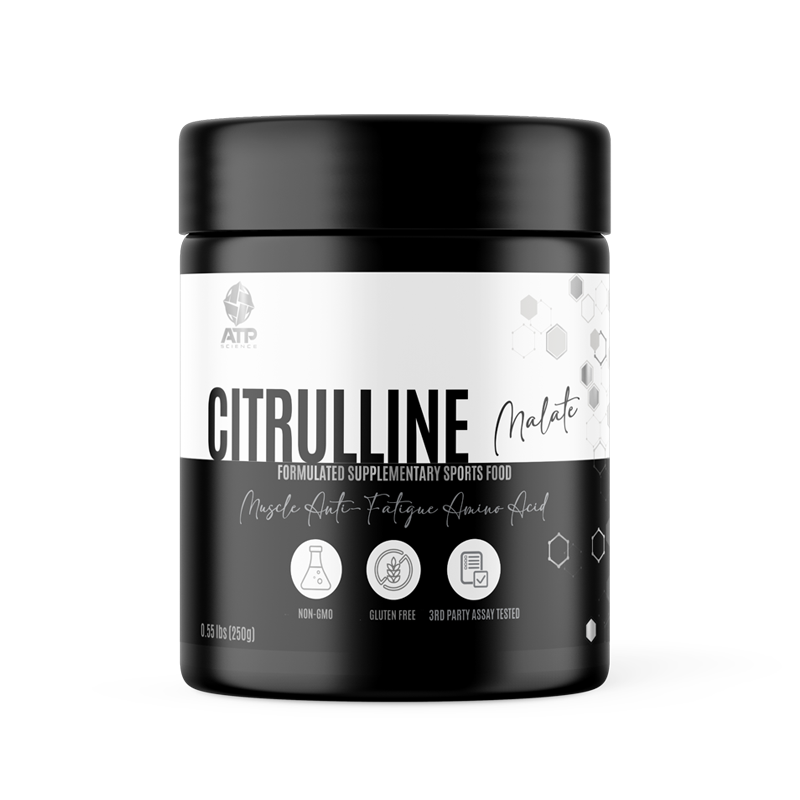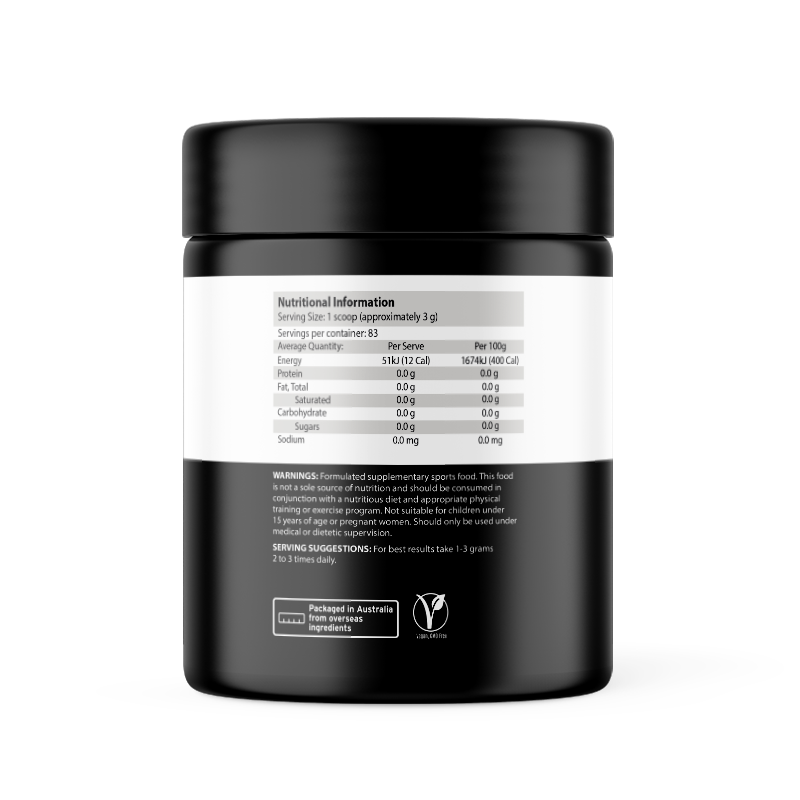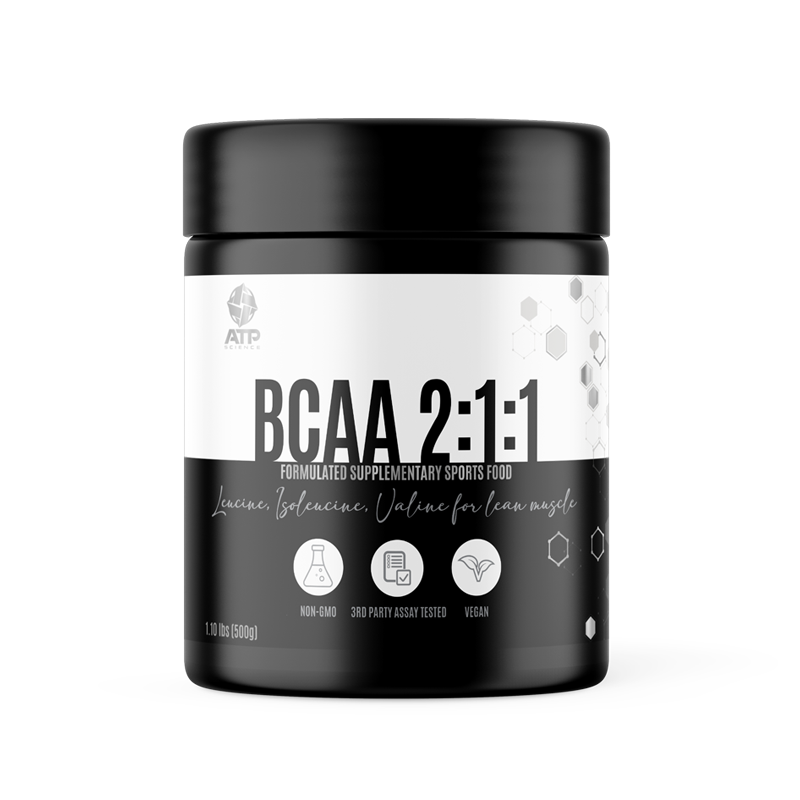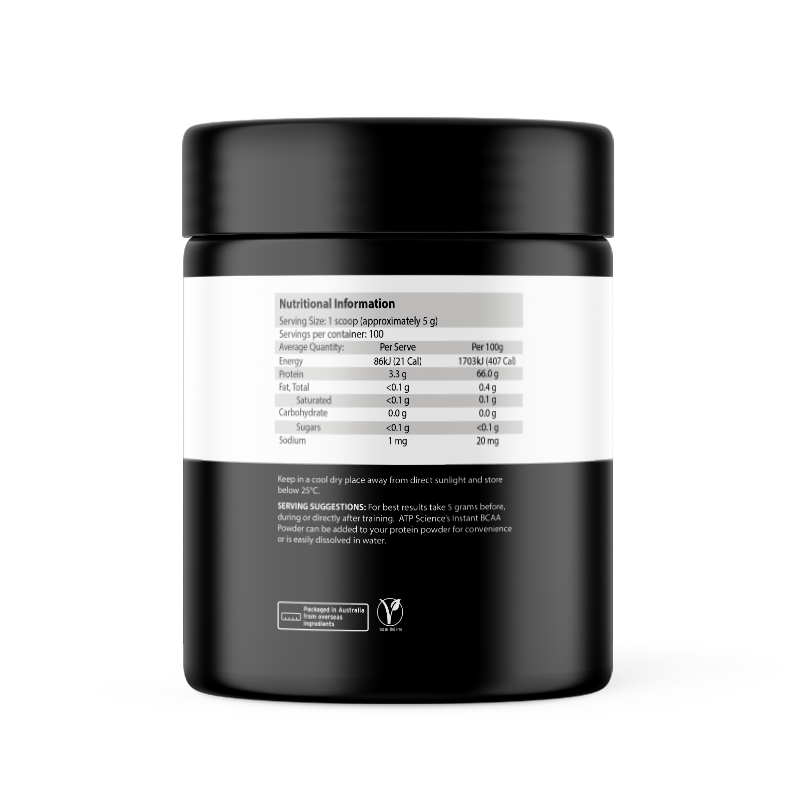Have you ever found yourself standing in the supplement aisle, baffled by the array of options, and stumbled upon 'Citrulline Malate' and 'L-Citrulline'? These two often pop up in discussions about gym supplements, sparking curiosity and sometimes, a bit of confusion.
So, what's the deal with these two Citrulline variants? Are they just fancy buzzwords, or do they hold the key to unlocking your next level of workout potential? In this blog, we're going to break down the science behind Citrulline Malate and L-Citrulline, transforming the complex jargon into something you can easily digest – almost as easily as your body does with these supplements! Whether you're gunning for muscle growth, chasing weight loss goals, or just curious about gut health, we’ve got the scoop on how these supplements could play a role in your fitness journey. Buckle up – it’s time to dive deep into the world of Citrulline and discover which of these might be your workout’s new best friend!
Citrulline: The Nitty-Gritty Basics
Before we jump into the Citrulline ring, let’s get to grips with what Citrulline actually is. In the scientific world, Citrulline is a non-essential amino acid, which means your body can produce it on its own. It's named after 'citrullus', the Latin word for watermelon, from which it was first isolated.
Now, let’s translate that into gym lingo. Imagine Citrulline as your body’s personal assistant. It doesn't just help out with one task; it’s got its fingers in a bunch of pies. It plays a crucial role in the urea cycle (that’s the process of removing waste products from your body), helps boost nitric oxide production (hello, improved blood flow!), and can even give your energy production a bit of a nudge.
But Citrulline doesn’t always go solo. It often comes in two main forms in supplements: Citrulline Malate and L-Citrulline. While they might sound like distant cousins, they each have their unique flair and function. Understanding these differences is key to figuring out which one might be the best wingman for your workout goals. So, let’s delve a little deeper and put these two under the microscope!
Unravelling the Functions: What Does Citrulline Do?
To truly appreciate the differences between Citrulline Malate and L-Citrulline, we first need to understand what Citrulline does in the body. Let's break it down:
Citrulline Boosts Nitric Oxide Production
When Citrulline enters your system, it's converted into another amino acid called L-arginine and, subsequently, into nitric oxide. This nitric oxide is a bit of a superstar – it helps widen your blood vessels, improving blood flow throughout your body. For gym-goers, this means more oxygen and nutrients can reach your muscles during a workout, enhancing performance and endurance.
Citrulline Supports the Urea Cycle
The urea cycle is a bit like your body's detox system. It helps remove harmful compounds, like ammonia, produced during intense exercise. By participating in this cycle, Citrulline helps reduce fatigue-causing toxins, allowing you to train harder and for longer.
Citrulline May Enhance Muscle Recovery
There's some evidence to suggests that Citrulline can aid in muscle recovery by reducing muscle soreness. This means you could potentially bounce back quicker from those gruelling workouts.
Now, imagine Citrulline like a utility player in a sports team – versatile, adaptable, and capable of improving overall team performance. Whether it's pumping up your blood flow, helping in waste removal, or aiding in recovery, Citrulline is there, working behind the scenes to help you nail your fitness goals.
With this understanding of Citrulline's role, we can better grasp the nuances between Citrulline Malate and L-Citrulline and how they can each contribute uniquely to your workout regimen. Let's get ready to explore these differences next!
Citrulline Malate vs L-Citrulline: The Showdown
While they both stem from the same amino acid, their differences are crucial in understanding how they can benefit your workout routine.
Citrulline Malate
The Combo: Citrulline Malate is essentially L-Citrulline combined with malate, an organic salt. This duo works synergistically, offering more than just what plain L-Citrulline brings to the table.
Energy Production Boost: Malate plays a key role in the Krebs cycle – a critical energy-producing process in the body. This means Citrulline Malate doesn’t just help with blood flow; it also potentially boosts your body's energy production.
Preferred for Endurance: Due to this dual action, Citrulline Malate is often favoured by athletes engaging in longer and more endurance-based workouts.
L-Citrulline
Pure Form: L-Citrulline is Citrulline in its pure form, without the addition of malate. It's more straightforward in its approach, focusing primarily on increasing nitric oxide levels.
Muscle Recovery and Pumps: Without the malate, L-Citrulline's main claim to fame is enhancing those muscle pumps and supporting recovery by improving blood flow.
Ideal for Short, Intense Workouts: This makes L-Citrulline a great choice for those engaged in short, high-intensity workouts, where muscle pump and quick recovery are key.
Think of Citrulline Malate and L-Citrulline like two types of fuel for your car. L-Citrulline is like premium petrol, giving you a more efficient and powerful engine performance (i.e., better muscle pumps and recovery). On the other hand, Citrulline Malate is like adding a turbocharger (malate) to that premium petrol, giving you not just the enhanced engine performance but also an extra kick of energy for the long haul.
So, which one is right for you? It boils down to your workout style and goals. If endurance and sustained energy are your targets, Citrulline Malate might be your go-to supplement. But if you're all about explosive strength and quick recovery, L-Citrulline could be your ideal pick.
Versatile Benefits: From Muscles to Munchies
Now that we've established the fundamental differences between Citrulline Malate and L-Citrulline, let's see how they align with various health goals. Whether you’re aiming for weight loss, muscle growth, or even better gut health, these supplements have something up their sleeves.
Weight Loss
Boosting Metabolism: Citrulline has been shown to improve blood flow, which can indirectly aid your body’s metabolism. Enhanced blood flow means more oxygen and nutrients getting delivered to your muscles, leading to more efficient workouts and potentially more calories burned.
Citrulline Malate for Endurance: For those long, calorie-torching cardio sessions, Citrulline Malate might be your best friend. The added endurance can help you go that extra mile (quite literally) to burn more calories.
Muscle Growth
Enhanced Protein Synthesis: Remember how we talked about improved blood flow? Well, this means better delivery of nutrients like amino acids to your muscles, crucial for protein synthesis and muscle growth.
L-Citrulline for Muscle Recovery: After those intense muscle-tearing sessions, L-Citrulline’s role in aiding muscle recovery can be a game-changer, helping you get back to the gym faster.
Gut Health
Improved Digestion: While not its most celebrated role, the improved blood flow from Citrulline supplementation can also positively impact your gut health. Better blood flow can lead to better digestion and nutrient absorption.
Picking Your Potion
So, which one to pick? If your main goal is building stamina and pushing through longer workouts, Citrulline Malate can be your ally. Its ability to assist in energy production makes it a good fit for endurance athletes or those long, gruelling gym sessions. On the flip side, if you're more focused on high-intensity, strength-based workouts and quick muscle recovery, L-Citrulline's your go-to.
Tailoring Citrulline to Your Health Goals
Choosing between Citrulline Malate and L-Citrulline isn’t just about understanding their differences; it’s also about aligning them with your personal health and fitness objectives. Let’s explore how to tailor these supplements to various goals, ensuring you make an informed choice that supports your unique journey.
For the Muscle Builders
If packing on lean muscle is your goal, L-Citrulline might be your star player. Its ability to enhance blood flow helps deliver nutrients and oxygen to your muscles more efficiently, facilitating growth and reducing recovery time.
Consider supplementing with L-Citrulline post-workout to capitalise on its muscle recovery benefits.
For the Endurance Athletes
Endurance athletes or those engaged in prolonged physical activities could find a faithful companion in Citrulline Malate. The addition of malate aids in energy production, helping sustain longer workout sessions.
Taking Citrulline Malate before your endurance training could give you that extra edge in stamina and performance.
For Weight Loss Warriors
If weight loss is your primary goal, Citrulline Malate can be a valuable addition to your regimen. Its endurance-boosting properties mean you can potentially engage in more prolonged, calorie-burning workouts.
Combine Citrulline Malate with a balanced diet and regular cardio or HIIT sessions for optimal results.
For Overall Wellness and Gut Health
For those focusing on general wellness, including gut health, either form of Citrulline can be beneficial due to its blood flow enhancement. This can lead to better digestion and nutrient absorption.
Incorporate Citrulline as part of a holistic approach to health, alongside a diet rich in fruits, vegetables, and whole grains.
Think about your endgame. Consider your intentions when choosing between Citrulline Malate and L-Citrulline. What are your primary fitness goals? How does your current workout routine look? Your answers will guide you to the right choice.
Remember, supplements are just part of the equation. Diet, exercise, and lifestyle choices play equally crucial roles in achieving your health and fitness aspirations.
Harnessing the Power of Citrulline for Your Fitness Journey
It's clear that both these supplements can be potent allies in your fitness arsenal, each offering unique benefits tailored to different workout styles and health goals. Whether you're lifting heavy in pursuit of muscle growth, pounding the pavement for endurance, or seeking an all-around wellness boost, Citrulline has a role to play.
As with any supplement, the journey with Citrulline Malate and L-Citrulline should be one of exploration and learning. Stay curious, stay informed, and don't be afraid to experiment (safely, of course) to find what works best for you. Here at ATP Science, we're all about empowering your fitness journey with knowledge and quality supplements. So, whether you’re a gym newbie or a seasoned pro, let Citrulline be a part of your journey to achieving those lofty fitness goals!
Remember, the path to fitness is as much about the journey as it is about the destination. So, lift those weights, hit those trails, and let Citrulline back you up every step of the way! 🏋️♂️🚴♀️💪






















